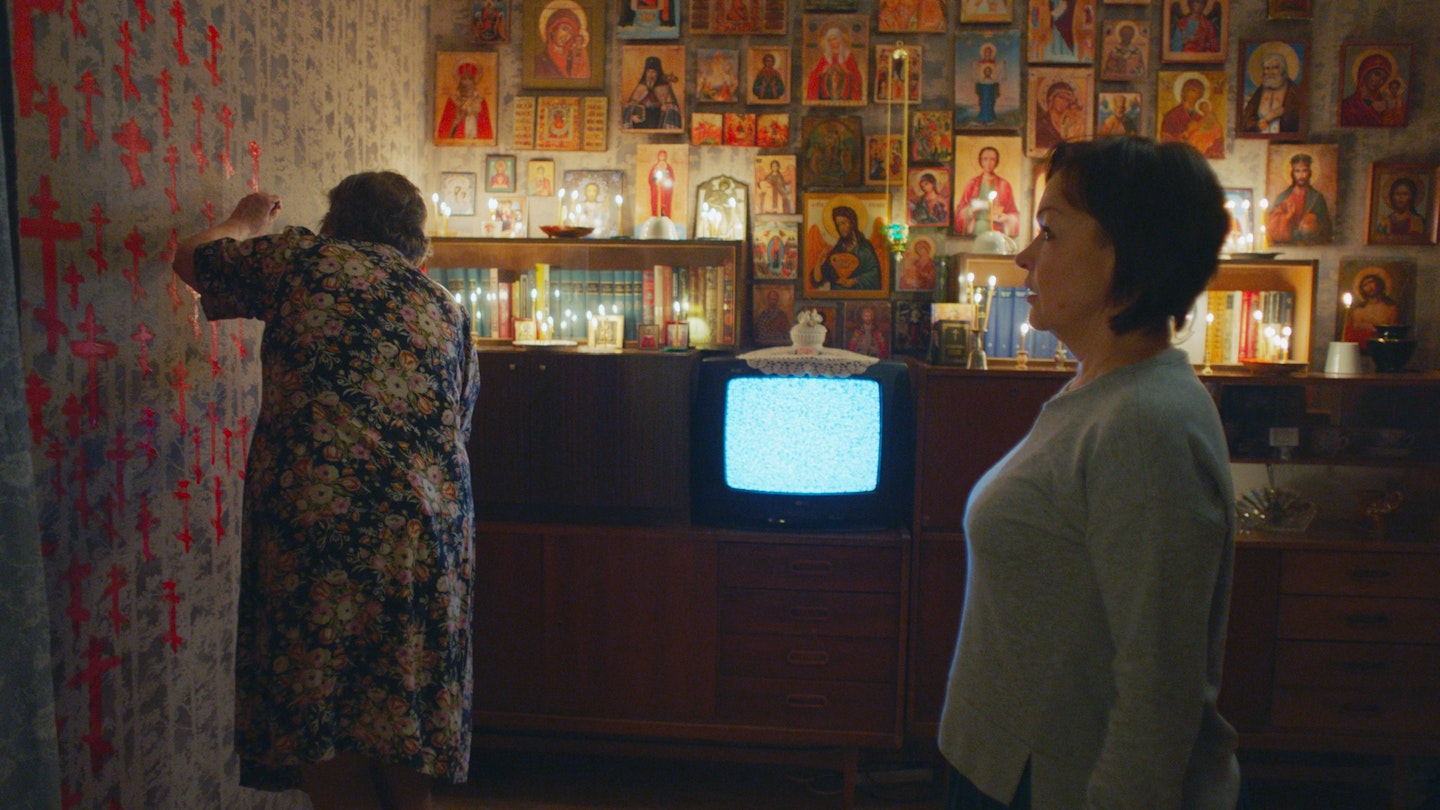In Hollywood pitch rooms right now, Zoology is probably being retooled as a vehicle for Amy Schumer. The story of a lonely woman whose life gets turned around when she grows a tail, Ivan V. Tverdovsky’s follow up to 2014’s Corrections Class takes the conceit in a completely different direction. Instead, it’s a weird mix of zero-degree humour, Kafka-esque parable, social realism and Cronenbergian body horror but somehow Tverdovsky conjures up an almost fairy tale feel out of such disparate ingredients. It also finds the perfect centre in Pavlenkova, who makes Natasha’s journey memorable, believable and affecting.
It’s not an upbeat film, but it finds a compassion.
As it starts, Zoology feels like an exercise in Russian miserablism. Natasha works in the administration department of a zoo, purchasing substandard food for the animals she loves due to meagre resources. She is hectored by her boss and bullied by her colleagues (it’s the old fill-the-desk-drawer-with-a-pack-of-rats routine) in scenes that could come from a droll workplace comedy. Her home life is little better, looking after a domineering, deeply religious mother. When Natasha faints at work with lower back pains, a visit to the doctor reveals she has sprouted a tail. In other movies, it would be a Big Moment but Tverdovsky introduces Natasha’s new body part with disarming matter of fact-ness, both in terms of the reaction to it and the way it just slides into frame.
The tail — it’s a pretty crude prosthetic, you can practically see where it is affixed to Pavlenkova’s back — has a number of boons for Natasha’s humdrum life. Firstly, Natasha discovers how to use her new appendage to pleasure herself in a scene that stays the right side of ridiculous and tasteful. But more importantly, it brings her into the orbit of Petya (Dmitri Groshev), a handsome young radiographer who not only doesn’t baulk at her difference but is drawn to it. His attention kick-starts a rejuvenation in Natasha that — in time honoured movie tradition — sees her get a new hairdo, cut short her long dresses and discover fun. There is a lovely section in which the pair go sledding on metal trays and let loose with wild abandon on a dance floor that soon scatters when Natasha doesn’t realize, in her reverie, her tail is swinging loose and free.
If ‘What if a woman grows a tail?’ is a high concept, Tverdovsky’s approach is decidedly low key. Early scenes take their time in establishing Natasha’s plight, gradually etching a disenchanted life. Tverdovsky’s filmmaking is equally muted. The camera work is handheld but more observational documentary than Paul Greengrass, following Natasha from behind to deny her facial reactions and an inner life. The palette is dialled down, all cold whites, greys and blues, the seaside town she pootles around straight out of a Morrissey song. The effect is not only an extension of Natasha’s colourless worldview (the film brightens after she meets Petya), it also roots her fantastical appendage in the everyday. It keeps the fable-like quality honest.
Like the shark in Jaws, the tail works as an all-purpose metaphor. It could stand in for anything, from the dangers of being different to body shaming to the way women become invisible as they become older. That Tverdovsky never precisely nails what he wants to say with it blunts its effectiveness. Still Zoology remains a sad, strange curio. It’s not an upbeat film — especially come the ending — but it finds a compassion especially in Pavlenkova’s performance, for the lonely and the outcast.
